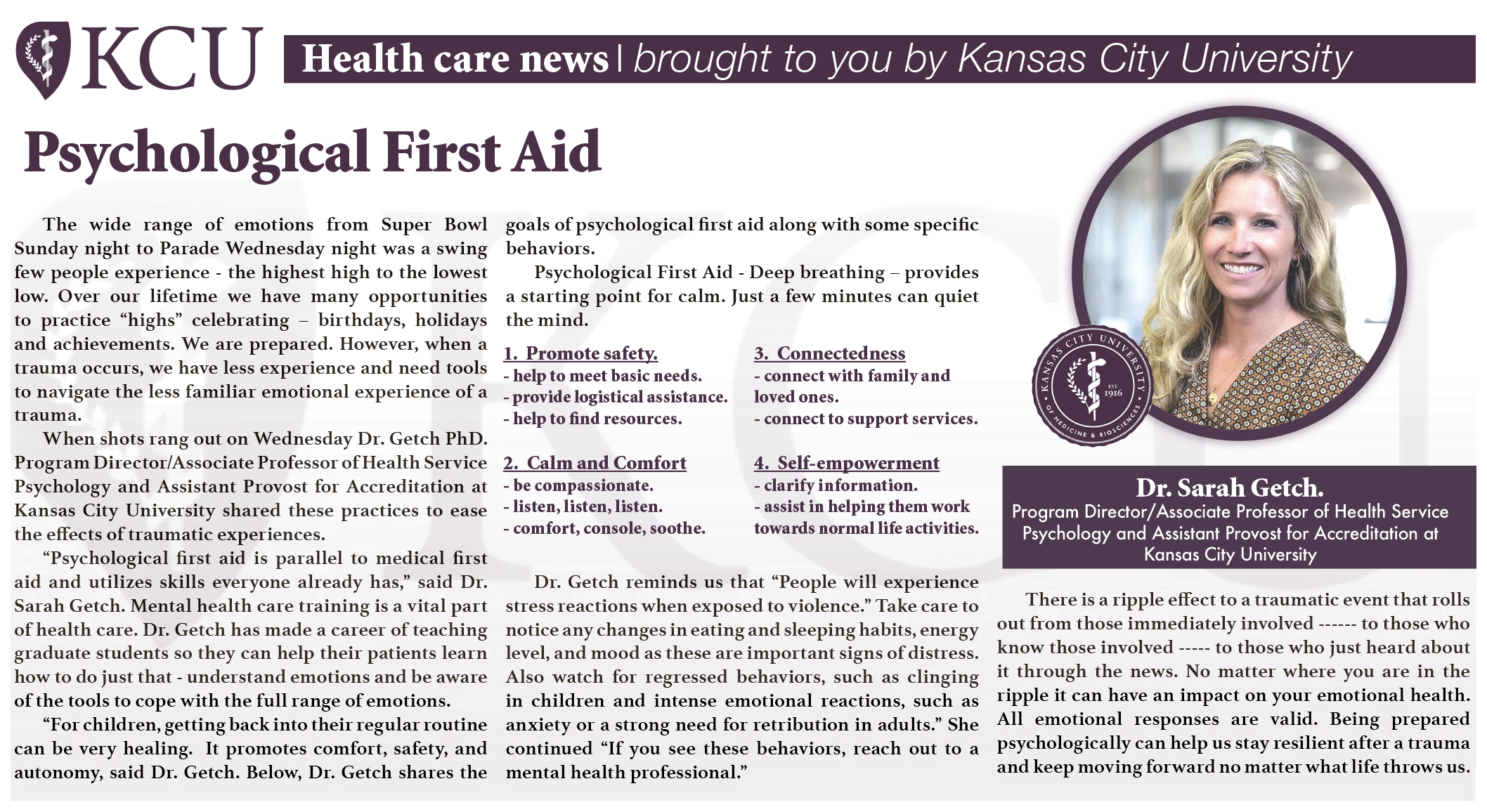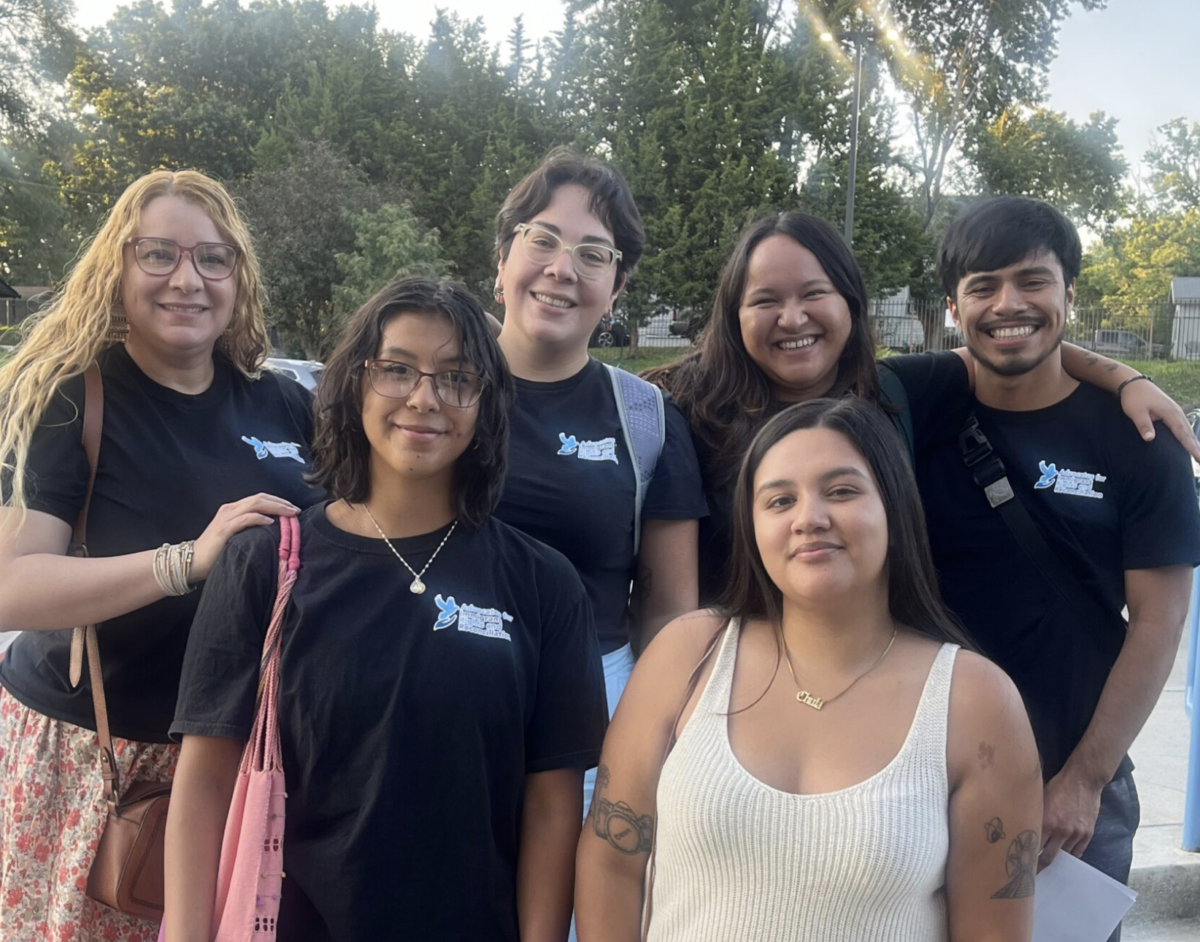
Dr. Sarah Getch
Program Director/Associate Professor of Health Service Psychology and Assistant Provost for Accreditation at Kansas City University
The wide range of emotions from Super Bowl Sunday night to Parade Wednesday night was a swing few people experience – the highest high to the lowest low. Over our lifetime we have many opportunities to practice “highs” celebrating – birthdays, holidays and achievements. We are prepared. However, when a trauma occurs, we have less experience and need tools to navigate the less familiar emotional experience of a trauma.
When shots rang out on Wednesday, Dr. Getch PhD. Program Director/Associate Professor of Health Service Psychology and Assistant Provost for Accreditation at Kansas City University shared these practices to ease the effects of traumatic experiences.
“Psychological first aid is parallel to medical first aid and utilizes skills everyone already has,” said Dr. Sarah Getch. Mental health care training is a vital part of health care. Dr. Getch has made a career of teaching graduate students so they can help their patients learn how to do just that – understand emotions and be aware of the tools to cope with the full range of emotions.
“For children, getting back into their regular routine can be very healing. It promotes comfort, safety, and autonomy,” said Dr. Getch. Below, Dr. Getch shares the goals of psychological first aid along with some specific behaviors.
Psychological First Aid – Deep breathing – provides a starting point for calm. Just a few minutes can quiet the mind.
1. Promote safety.
- help to meet basic needs.
- provide logistical assistance.
- help to find resources.
2. Calm and Comfort
- be compassionate.
- listen, listen, listen.
- comfort, console, soothe.
3. Connectedness
- connect with family and loved ones.
- connect to support services.
4. Self-empowerment
- clarify information.
- assist in helping them work towards normal life activities.
Dr. Getch reminds us that “People will experience stress reactions when exposed to violence.” Take care to notice any changes in eating and sleeping habits, energy level, and mood as these are important signs of distress. Also watch for regressed behaviors, such as clinging in children and intense emotional reactions, such as anxiety or a strong need for retribution in adults.” She continued “If you see these behaviors, reach out to a mental health professional.”
There is a ripple effect to a traumatic event that rolls out from those immediately involved —— to those who know those involved —– to those who just heard about it through the news. No matter where you are in the ripple it can have an impact on your emotional health. All emotional responses are valid. Being prepared psychologically can help us stay resilient after a trauma and keep moving forward no matter what life throws us.


















